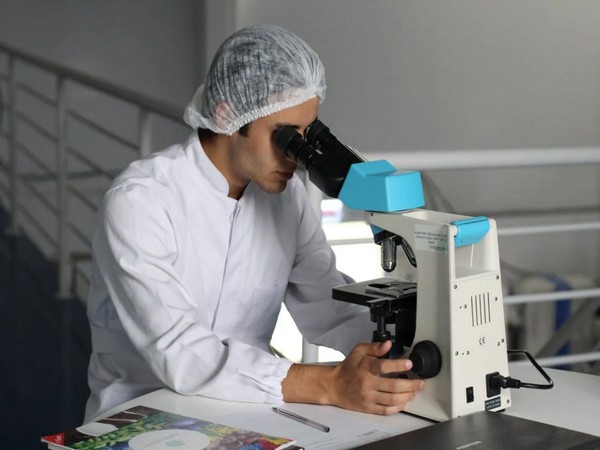IAEA, UNICRI propose efforts on use of nuclear science to combat illicit trafficking in cultural goods
The retail value of illicit trafficking in cultural property is estimated to be between US $1.2 billion to 1.6 billion, annually.

The International Atomic Energy Agency (IAEA) and the United Nations Interregional Crime and Justice Research Institute (UNICRI) are intensifying their efforts on the use of nuclear science to combat illicit trafficking in cultural goods. The retail value of illicit trafficking in cultural property is estimated to be between US $1.2 billion to 1.6 billion, annually. Such criminal activities encompass a range of illicit actions, including the theft of cultural property from museums, the illegal excavation and looting of archaeological sites, and the illicit transfer of ownership.
Trafficking in cultural property, together with the destruction of cultural heritage, has been recognized as a threat to international peace and security by the United Nations Security Council. Moreover, the UN General Assembly Resolution 76/16 on “Return or restitution of cultural property to the countries of origin”, was adopted unanimously on 6 December 2021, calling for comprehensive measures to step up the fight against illicit trafficking in cultural property.
At an informal technical briefing held on 4 May 2023 at the IAEA Headquarters in Vienna, the two organizations presented their cooperation to date and their proposal to establish and operate an integrated platform to support Member States’ efforts towards more effective crime prevention and control to fight illicit trafficking in cultural property. Experts from diverse fields discussed the key aspects of illicit trafficking in cultural property, highlighted IAEA activities on sustainable heritage management and its success stories on the role and use of nuclear analytical techniques to detect looted and fake artifacts.
Nuclear analytical techniques can play a pivotal role in investigating and prosecuting different forms of illicit trade and forgeries. These techniques can contribute in three important ways. Firstly, to identify non-original cultural heritage products which fraudsters intend to pass off as originals; secondly, to identify trafficked works of art and cultural property; and thirdly (in the area of precious metals), to support the identification of the exact geographical provenance of gold, platinum, and other metals, also contributing to the discovery of illegal mining operations and illicit trafficking of precious metals.
“The aim of the new initiative is to enhance Member States' ability to recover economic losses caused by illicit trafficking in cultural property, as well as support their efforts in achieving Sustainable Development Goals, such as target 16.4 on combating organized crime and reducing illicit financial and arms flows,” said Leif Villadsen, Deputy Director of UNICRI.
The proposed platform will bring together the IAEA's expertise in nuclear analytical techniques with UNICRI's knowledge and network in crime prevention and justice, and include several components, such as threat analysis and technology benchmarking, research and development of nuclear analytical techniques for authentication and provenance, knowledge transfer and technology uptake, inter-agency outreach, establishment of a knowledge platform for information exchange, and provision of analytical services for authentication and provenancing upon request by Member States.
“We call on countries to help us in deepening the dialogue between scientists and law enforcers for increased use of nuclear science and technology to combat illicit trafficking in cultural goods and illicit trade, and support the achievement of the Sustainable Development Goals,” said Najat Mokhtar, IAEA Deputy Director General and Head of the Department of Nuclear Sciences and Applications.
Long time partners in several areas including nuclear security and forensics, the IAEA and UNICRI signed an agreement in 2021 to increase collaboration in preventing and countering criminal activities around the world using nuclear science and technology Most recently, at a workshop in Ghana in March, experts from the two organizations highlighted the strong need for collaboration between nuclear scientists and law enforcement actors. IAEA, UNICRI Propose Cooperation Platform on Using Nuclear Techniques to Combat Illicit Trafficking in Cultural Goods










